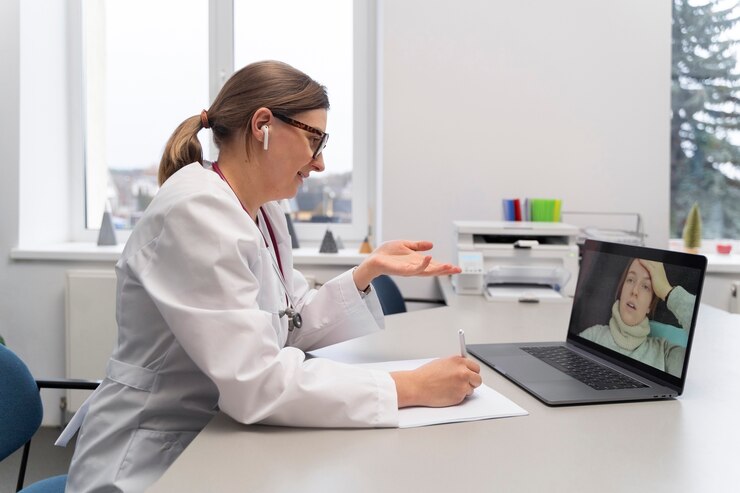The healthcare industry has significantly improved patient experience and operational efficiency in recent years. One trend increasingly gaining traction is the implementation of virtual medical receptionists. These digital assistants offer various services traditionally performed by in-person receptionists, such as scheduling appointments, managing patient inquiries, and coordinating communications between patients and healthcare providers. As we look to the future, the role of virtual medical receptionists is poised to expand, transforming how healthcare facilities operate.
Enhanced Patient Experience
One of the most notable advantages of employing medical office virtual receptionist is the improvement in patient experience. In a world where convenience and efficiency are paramount, patients expect quick resolutions to their inquiries and streamlined processes for managing their healthcare needs. Virtual medical receptionists can provide 24/7 service, allowing patients to book appointments, access information, and receive reminders at their convenience, regardless of the time of day. This level of accessibility not only fosters greater patient satisfaction but also builds stronger relationships between patients and healthcare providers.
Cost Efficiency for Healthcare Practices
Healthcare facilities constantly seek ways to reduce costs while maintaining high-quality patient care. Virtual medical receptionists can significantly lower operational costs by reducing the need for full-time staff. With less emphasis on physical presence, medical practices may invest in regions and distribute resources more effectively, directly impacting patient care. Furthermore, virtual receptionists can help optimize scheduling, ensuring providers make the most of their time and minimize appointment gaps, thus enhancing revenue generation.
Streamlining Operations
The integration of virtual medical receptionists into healthcare practices streamlines various operational processes. For instance, these virtual assistants can handle repetitive administrative tasks like collecting patient information, verifying insurance details, and sending appointment reminders. By automating these duties, healthcare staff can concentrate on more challenging jobs that call for human knowledge, such as patient interactions and problem-solving. This shift improves staff productivity and ensures patients receive more personalized and focused care.
Reducing Wait Times
Long wait times are a common frustration for patients visiting healthcare facilities. With virtual medical receptionists, practices can reduce these delays by managing patient flow more effectively. By automating appointment scheduling and confirmations, virtual receptionists can help eliminate bottlenecks traditional scheduling methods create. Additionally, these systems can analyze patient data to Estimate peak hours and modify staffing levels appropriately, ensuring that practices run smoothly and efficiently during busy periods.
Increased Accessibility to Care
The rise of virtual receptionists also contributes to greater accessibility to healthcare services, especially for patients in remote or underserved areas. By offering virtual interactions, healthcare systems can reach patients needing help with traditional in-person visits, such as mobility issues, transportation challenges, or a lack of nearby facilities. Virtual medical receptionists can facilitate telehealth consultations, facilitating patients’ access to care when and where they need it. This is particularly vital in a post-COVID-19 world, where patients have grown accustomed to digital communications.
Support for Multilingual Patients
As the population becomes increasingly diverse, healthcare providers must accommodate multilingual patients. Virtual medical receptionists can bridge language barriers by offering services in multiple languages, ensuring patients fully comprehend their healthcare options and services. This enhances non-English-speaking patients’ experience and demonstrates the provider’s commitment to inclusivity and cultural sensitivity.
Data Security and Privacy
A primary concern in the digital age is data security and patient privacy. Virtual medical receptionists must adhere to strict HIPAA guidelines to keep patient information confidential and secure. Healthcare practices can protect sensitive data while providing the convenience of virtual interactions by utilizing secure digital platforms. By taking these measures, virtual medical receptionists comply with legal standards and build trust with patients who are increasingly aware of privacy issues.
Future Opportunities for Virtual Receptionists
As technology develops further, the possibility for virtual medical receptionists to expand their roles also grows. Future developments may include:
- Capabilities for handling more complex inquiries.
- Offering personalized healthcare advice based on patient history.
- Efficiently managing follow-up care.
Additionally, integrating these systems with electronic health records (EHRs) can facilitate smoother communication and data sharing among healthcare providers, improving patient outcomes.
Training and Support for Virtual Receptionists
In-depth instruction and continuous assistance are necessary to guarantee the effectiveness of virtual medical receptionists. These receptionists must be well-versed in healthcare protocols, patient privacy regulations, and the specific systems used by their employers. Equipping them with the knowledge and tools to handle various patient scenarios enhances performance and fosters confidence. Regular training sessions can also keep them updated on the latest digital tools and practices in the healthcare field. Moreover, establishing a robust support system allows virtual receptionists to seek assistance from experienced staff when faced with complex situations, ultimately leading to improved patient interactions and care outcomes.
Integration with Other Healthcare Technologies
The future of virtual medical receptionists lies in their integration with various healthcare technologies. As telehealth continues to gain traction, blending virtual receptionists with telemedicine platforms can create a seamless patient experience. This integration allows virtual receptionists to schedule and manage telehealth appointments while assisting with pre-visit preparations, such as collecting necessary medical history. Furthermore, connecting virtual receptionists with electronic health record (EHR) systems can facilitate real-time access to patient data, enabling more informed discussions and improved continuity of care. As technology advances, these integrations will become essential in supporting efficient care delivery and enhancing patient engagement.
Conclusion
The rise of virtual medical receptionists signals a transformative shift in the future of healthcare. By enhancing patient experience, reducing operational costs, and streamlining processes, these digital assistants are set to become integral components of modern healthcare delivery. As providers adapt to the changing landscape, embracing DocVA virtual receptionists will improve efficiency and pave the way for a more accessible and patient-centered approach to healthcare. With an eye on innovation, the healthcare sector stands to gain significantly from the ongoing integration of virtual medical receptionists, ultimately leading to improved patient outcomes and greater overall satisfaction.
Have A Look :-
- Crypto BTC & ETH Minor Price Hike – Bitcoin Reaches The Mark Of $25,800
- UNESCO’s First Guidance On The Usage Of Gen-AI In The Field Of Education


